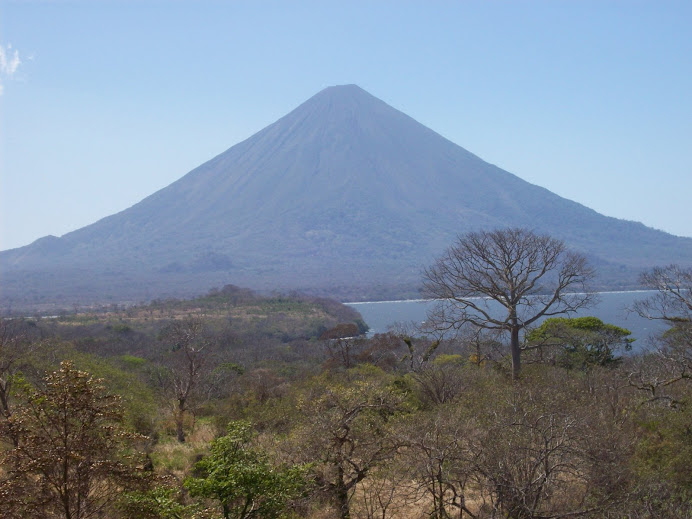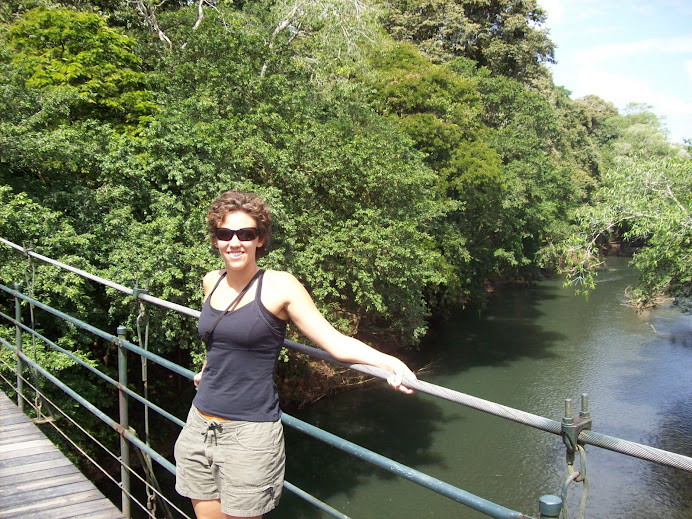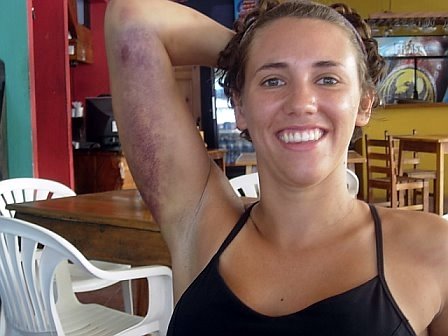Salvador
Salvador is the home of capoeira and many of Brazil´s now most famous music and dance styles, all the result of an African population brought into the region against their will over the course of three centuries. They brought with them their rich culture and arts, which flourished in spite of oppression, as in every part of the world which has been touched by the African diaspora. Today, Salvador is a dynamic multicultural and multiracial city of more than four million inhabitants. The traffic and the crowds on the beaches and at concerts are often anxiety-inducing, but with the natural beauty of the location of the city on the Bay of All Saints, the 16th century forts and 18th century Pelourinho (a UNESCO World Heritage site), the divine cuisine, the live forró (a regional music played with accordions, drums, and triangles), and best of all the vivacious and gregarious people, it was hard for me to find Salvador anything less than exciting, stimulating, and just plain fun.
Cidade Baixa & Cidade Alta, Salvador da Bahia
Enjoying the tunes of my favorite forró band in the plaza in Rio Vermelho, Salvador on the night of my despedida
During my 3 weeks in Salvador I attended Portuguese classes for four hours each morning at IDIOMA Language School. I must admit that I spent nearly as many hours every afternoon on the beach. What a life, huh? At least all that time on the beach often allowed my to practice my Portuguese by turning down smoked cheese, shrimp, and necklace vendors, or on occassion accepting a cold beer or coconut. In the evening I would walk up hill from the beach to my host family´s house, where I would spend time chatting with them over coffee and cake, and cracking up over the jokes of my hilarious host father. Tânia and Nivaldo made for wonderful host parents.
My Brazilian host family and me
Itsy Bitsy Brazilian Bikinis
After two weeks on the beach in my American bikini, which I had never previously considered to be particularly modest, I grew tired of feeling that all eyes were on me and my fabric covered bottom obviously belonging to a foreigner whenever I walked to the water. There is a myth in my country that all Brazilian women have gorgeous bodies, and that that explains why they wear scandalously skimpy bikinis. Well I am here to say that Brazilian women have bodies just like the rest of us. They come in all shapes and sizes, and all are barely covered by a few strings and strips of fabric when they hit the beach. So I decided to go native and purchase a somewhat less modest bikini, not quite as teeny tiny as most Brazilians use, but something less American looking. I chose a Barbie pink model, something I never would have worn at home, which made it feel right. I immediately began to feel less conspicuous on the beaches of Salvador, especially after I got some sun on body parts that had never before seen the light of day, and had the even tan of a brasileira. Sure, it might sound silly and vain, yet this was part of my adjustment to Brazlian culture. And, to be perfectly honest, I considered my 3 weeks in Salvador to be a time to soak up language, culture, and sun, without doing much of anything else.
Jumping for joy at Praia do Farol in my big old American bikini
Recife
It worked. I arrived in Recife, my field site and the city in which I´ll be located until April, with a nice tan, an advanced level of Portuguese, and a feeling of relative comfort with Brazilian culture. Of course here in Recife I´ll spend most of my time in front of a computer or out in the sugar cane fields for my research, and much of the culture and language differs from what I became familiar with in Salvador. I´m already beginning to adapt my accent to that of this far northeastern region. In some ways is easier because the sounds are closer to Spanish. I will miss the soft d and the ch sound of t that I learned in Salvador, but in Recife I am far too busy straining to understand the local accent and vocabulary to have any saudade for those sounds.
Here in Recife, a city famous for its crime and shark attacks, I am staying with the family of Renata, who works as a journalist for the NGO I´ll be working with/collaborating with on my research. Renata lives with her parents and two sisters in a beautiful apartment on the 8th floor of a tall modern building, located on Shrimp Avenue, in the Lamb neighborhood. Yum. Renata and her sisters are all in their 20s and extremely friendly and open. After just three days there I´m already feeling like another sister. Their parents are also as sweet as can be, and have invited me into their home with truly open arms, converting their office into my bedroom, making sure I´m comfortable at all times, and working to fatten me up by feeding me delicious home cooked vegetarian meals. I can´t believe my luck to have ended up with two wonderful host families. From what I know of Brazilians so far, most are open, friendly, and generous, but I can´t help but feel that these two families are exceptional.
Jumping into my Research
On day two in Recife I woke up at 5 am to go with Renata to the forest region of Pernambuco (Pernambuco is that state that Recife is located in, and the forest region is the area near the coast that was once covered by Atlantic forest but has been cleared since the 16th century to plant sugarcane for sugar and now for ethanol production ) to visit a settlement of squatters from the MST, Brazil´s famed landless movement. I have started a separate blog in which I am going to discuss my experiences and reflections on the visit to this settlement and others. That blog will be used as a forum for explaining the experiences of rural workers in Pernambuco´s forest region. As a brief explanation of the reality here, today rural people in this region have three options: 1) Work cutting cane, which is extremely strenous labor for which they are at best paid enough to not starve to death. 2) Abandon the rural life and move to the favelas in Recife, which are miserable overcrowded shantytowns built on hillsides or alongside the numerous rivers that run through the city. 3) Join the MST in the hope of eventually being granted the right to a piece of land upon which to make a decent and respectable living. This is the reality that I will be studying during the next 6 months, as this is the reality of a region dominated by the sugarcane industry and fueled by the global "green" fuels movement. If you are interested in reading more about the lives of the people here, and about the Brazilian ethanol industry from the perspective of the rural workers whom I will be visiting with and learning from, than please follow my other blog: http://ethanolproductioninnortheastbrazil.blogspot.com/
My first day in the field in Pernambuco, at a small river within an MST settlement. Looks like I need some sunglasses.
This blog will be dedicated to telling the lighter side of my life in Recife, less related to my research. I hope to do weekly posts on both blogs, so please follow and make comments. Pictures will also be coming soon!
Abraços!




























